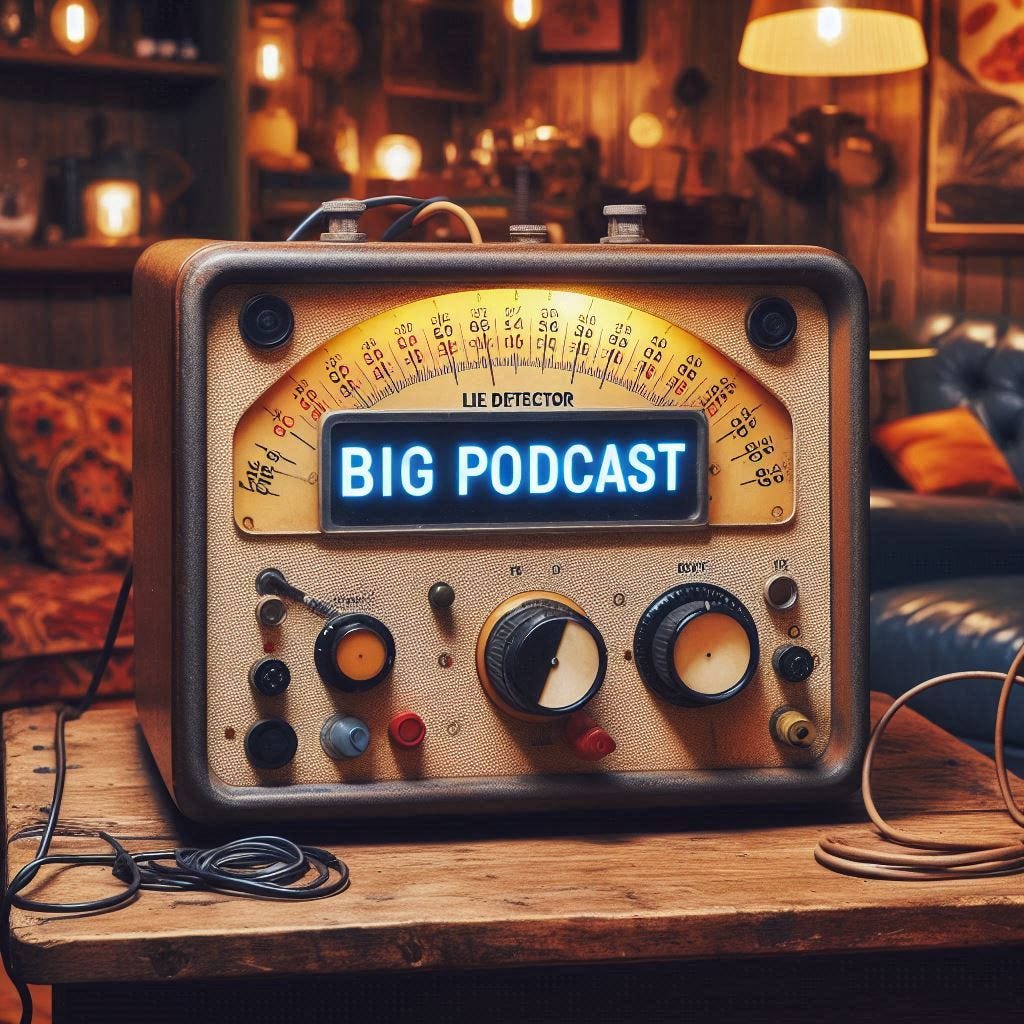The Lies Podcasters Tell Themselves
The Lies Podcasters Tell Themselves
Podcasting can feel overwhelming, especially when you're juggling content creation, production, and audience growth. It’s easy to fall into certain traps—mental roadblocks that keep you from moving forward or reaching your full potential.
These beliefs might sound logical at first, but they often hold you back more than they help. Here are some of the most common myths podcasters tell themselves and explore how to overcome them.
1. Having more time would allow me to produce a great podcast.
It’s tempting to believe that more time will magically transform your podcast into a masterpiece. This makes sense on the surface, but podcasting isn’t about having unlimited hours—it’s about using the time you have effectively.
Instead of waiting for the perfect schedule to magically appear, create a system that works for you now. Set deadlines and stick to them—even if the result isn’t "perfect."
Listeners aren’t expecting perfection. They’re looking for consistency and something they can connect with.
Remember, done is better than perfect. Each episode is an opportunity to improve, so focus on progress, not perfection.
2. Booking [GUEST NAME] would make my podcast successful.
While landing a big-name guest may add some prestige, it’s not a guaranteed formula for success. Listeners don’t tune in for a name—they tune in for value.
Instead of chasing high-profile guests, focus on finding people who align with your audience’s interests and can provide unique insights.
A lesser-known guest with engaging stories and perspectives is far more impactful than a celebrity who phones it in. Plus, building strong relationships with “smaller” guests can lead to future opportunities to grow together.
3. Telling listeners “your story” will convince them to subscribe.
An interesting origin story is a powerful marketing tool, but it’s not enough on its own to build an audience. Subscriptions come from a combination of factors: consistent value, clear calls-to-action, and trust in your content.
Instead of banking on one story to do all your heavy lifting, think about how stories fit into the bigger picture of your podcast. What ongoing value are you offering? How are you making it easy for listeners to subscribe? Build momentum by consistently delivering engaging episodes that earn listener loyalty.
4. An episode is either perfect or a complete disaster.
This kind of all-or-nothing thinking can sabotage a podcast. No episode will ever be 100% flawless, and that’s okay—imperfections often make episodes feel more human and relatable.
Instead of obsessing over "perfect," aim for "good enough."
Ask yourself: Is this episode clear? Does it provide value? Will it resonate with my audience?
If the answer is yes, hit publish.
Over-analyzing will only delay your growth and prevent you from learning through real-world feedback.
5. Producing good episodes isn’t possible without [PIECE OF GEAR].
It’s easy to get caught up in gear (or lack of it), but great content trumps fancy equipment every time. Some of the most successful podcasts started with nothing more than a smartphone or a basic USB mic.
What makes a great podcast is your ability to connect with your audience, tell interesting stories, and deliver value. If you already have decent equipment, even just a $60 USB mic, focus on improving your skills—editing, storytelling, interviewing—rather than obsessing over upgrades.
6. A larger budget would improve my sound quality.
While a bigger budget might make certain aspects easier, sound quality depends more on technique than money. With basic gear and free or affordable software like Audacity or Reaper, you can create professional-sounding episodes by learning proper mic placement, minimizing background noise, and mastering basic audio editing skills.
Instead of waiting for a bigger budget, work on maximizing the potential of what you already have.
7. Landing that sponsorship is the key to making my podcast thrive.
Sponsorships can be great, but they’re not the ultimate measure of success—and they’re definitely not essential for growth.
Instead of focusing solely on monetization through sponsorships, think about diversifying your revenue streams: merchandise, Patreon, online courses, or live events can all be viable options once you’ve built an engaged audience.
Sponsors are more likely to come knocking once they see you’ve created something valuable and sustainable on your own terms.
8. Pre-interviews aren’t necessary.
Skipping pre-interviews might seem like a time-saver, but it often leads to disjointed conversations and missed opportunities to dive deeper into important topics. A quick pre-interview (even 10–15 minutes) helps you understand your guest’s story, clarify key points, and plan thoughtful questions. It also builds rapport with your guest so they feel more comfortable and open during the actual recording.
While not strictly mandatory, pre-interviews are a smart way to elevate the quality of your episodes.
9. Getting in front of [INFLUENCER NAME] is essential for growth.
Collaborations with influencers can help expand your reach, but they’re not the only path to growth—and they’re not always as impactful as they might seem.
Focus on building an engaged community by delivering consistent value to your listeners first. Organic word-of-mouth recommendations from loyal fans are often more powerful (and authentic) than any shoutout from an influencer. Once you’ve established a solid foundation, collaborations will feel like a bonus rather than a necessity.
Focus on What Truly Matters
Podcasting success doesn’t come from external factors like gear, guests, or influencers—it comes from consistently creating valuable content that resonates with your audience. Break free from these myths and focus on what you can control: your creativity, preparation, and connection with listeners.
By shifting your mindset and embracing progress over perfection, you’ll be equipped to grow your podcast sustainably—and enjoy the process along the way!



